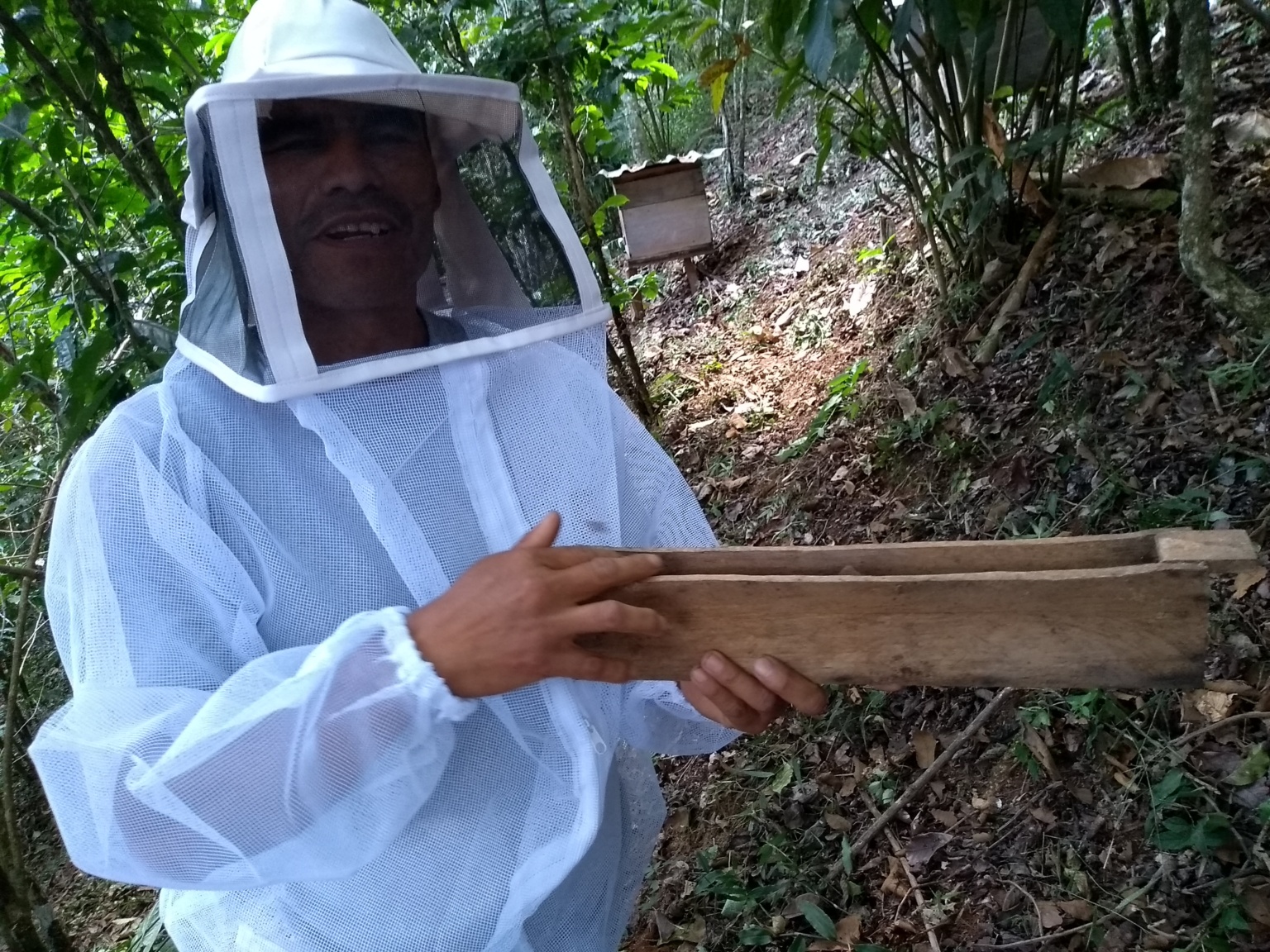
Maya Vinic
- honey cooperative from San Cristóbal de las Casas in Mexico
- produces quality honey amid its coffee plants
- Oxfam buys organic blossom honey directly from Maya Vinic
Strong fair trade links in disadvantaged region
The beekeepers of the Maya Vinic cooperative are all part of the Tsotsil, Tzeltal and Cho ‘l and are descendants of the ancient Maya. They live in the mountainous region surrounding San Cristóobal de las Casas. In this region of Mexico, coffee is the main crop, but for Oxfam it’s also a source of quality, fair-trade honey.
This region has been disadvantaged ever since the Spanish colonisation. For centuries now it has largely been seen as a reservoir of cheap labour for large coffee and sugar cane plantations across Mexico.
Maya Vinic offers its members not only economic and social solutions, but also the possibility to preserve and reinforce their own identity, language, culture and traditions. The members of this cooperative can rely on its rock-solid internal organisation, unity and mutual support.
In short, we’d say Maya Vinic is a fine example of a 100% indigenous, fair-trade cooperative.
Fair-trade honey from organic coffee fields
129 Maya Vinic members are beekeepers as well as organic coffee growers. They set up their beehives among their coffee plants, mostly. This means the bees make their honey predominantly from the nectar of the coffee blossoms. The result is a sweet and creamy, high-quality honey that’s both fair-trade and certified organic.
Due to climate change, the flowering periods are less and less predictable. This makes it increasingly difficult to harvest the same amount of honey year after year. This poses a serious challenge to the farmers, who are threatened with losing a significant portion of their income. Thankfully they combine the production of honey with the cultivation of coffee and the running of a cosy coffee bar in the touristic San Cristóbal de las Casas.
We have always made a point of offering high-quality products. Customers are happy to pay a fair price for products that we make with care.
Ana Maria, beekeeper at Maya Vinic
Maya Vinic & Oxfam
Oxfam-Wereldwinkels has been offering you this Mexican organic honey in three ways since 2018: in its pure form, as part of our artisanal speculoos cookies and in our moist honey cake.